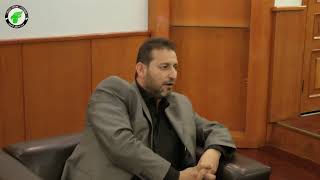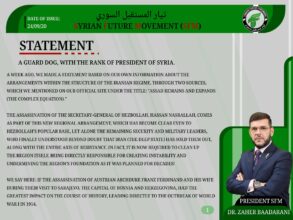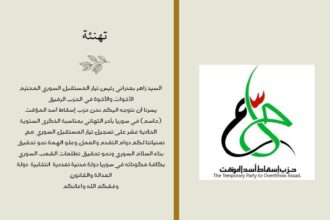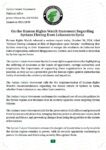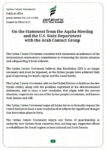“Assad remains and expands (the complex equation)”

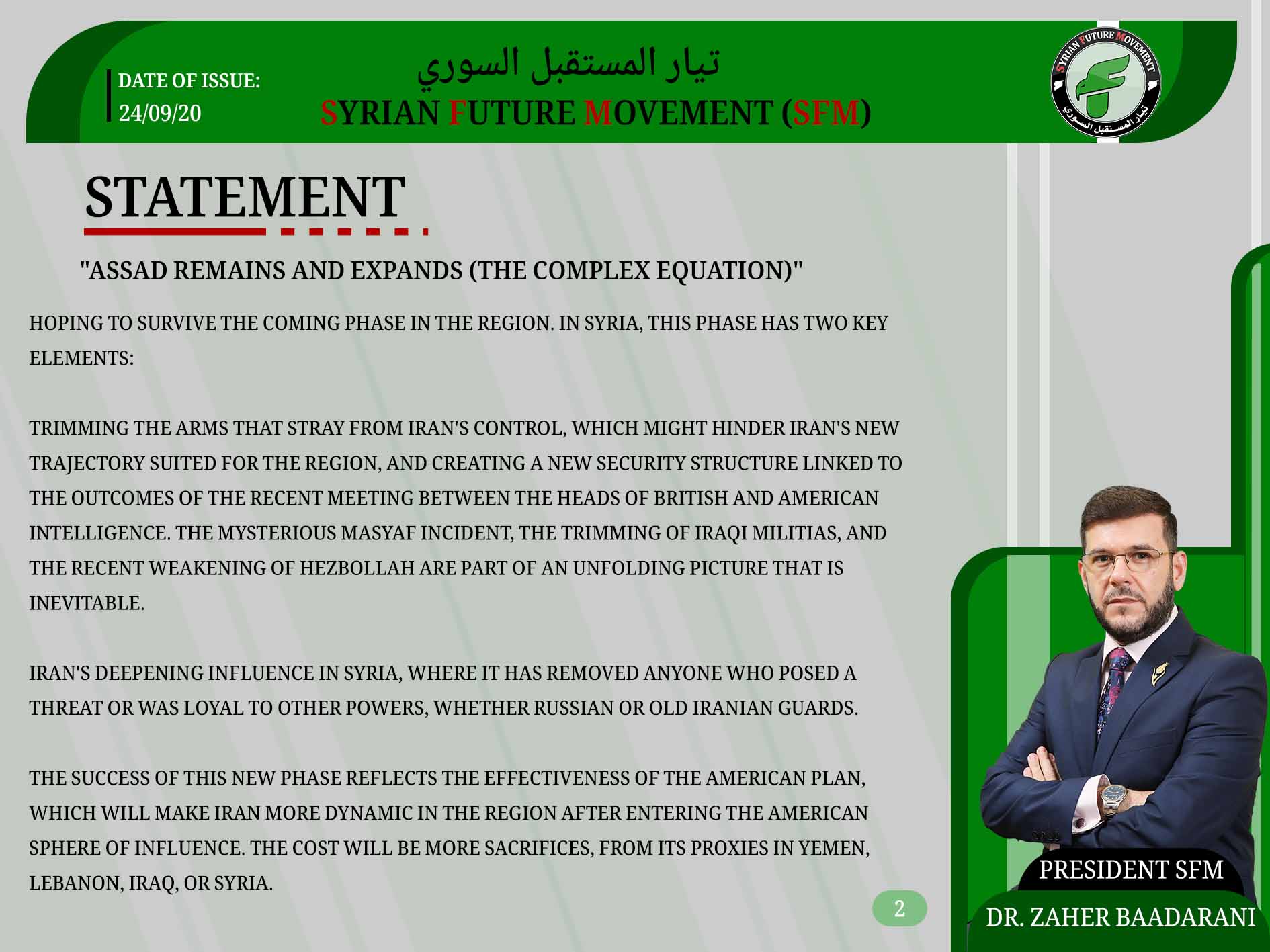
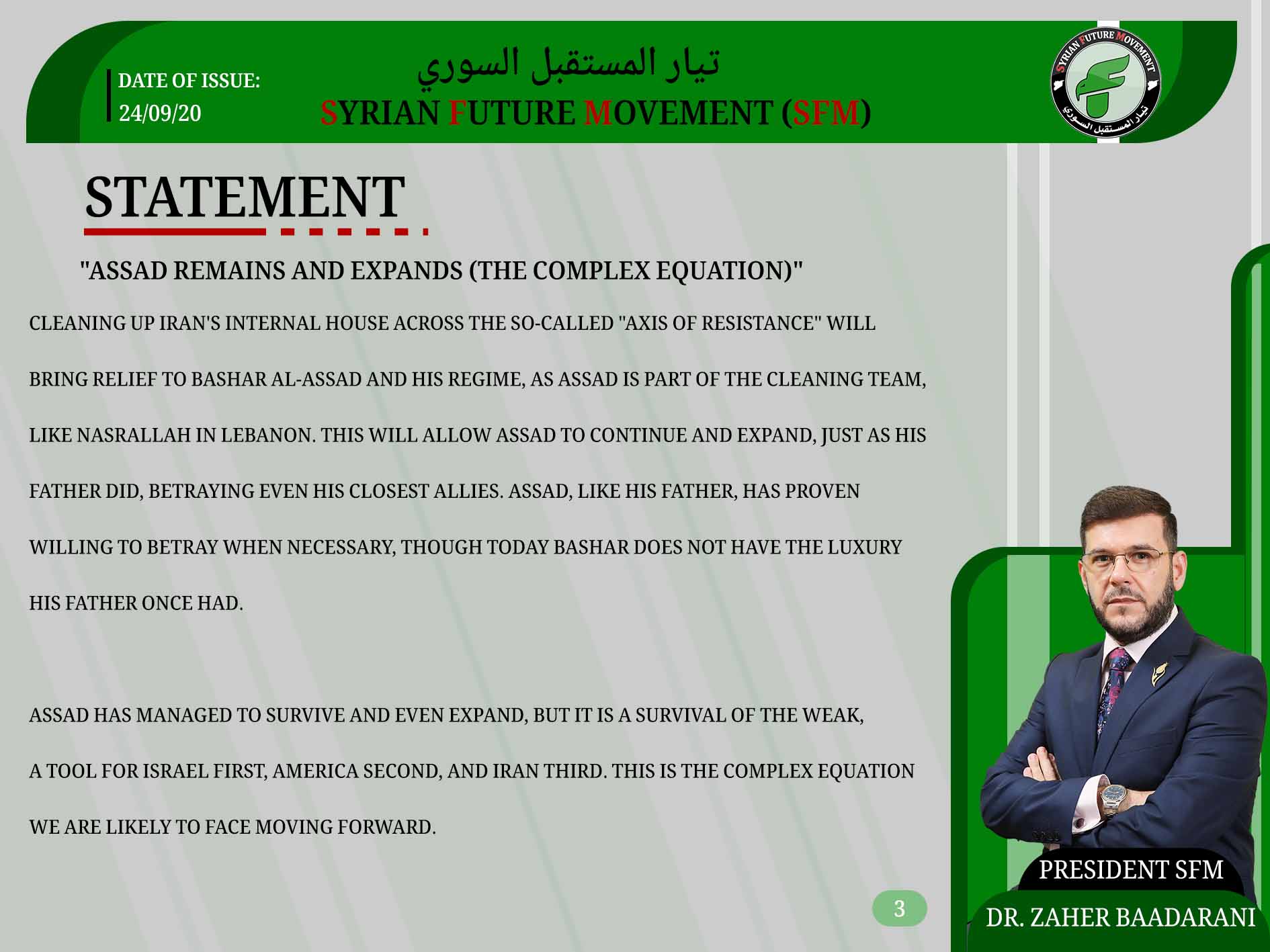
Our generation may not live to witness the unveiling of a new era of wars unseen by the world and unique to our region, the “Bloody East”! unless leaks like “WikiLeaks” emerge, but in a new and expanded version.
Neither the assassination of Qassem Soleimani, nor that of Iranian President Ebrahim Raisi, and the subsequent internal arrangements within the Iranian regime, which have led to more comprehensible assassinations, including that of Hamas leader Ismail Haniyeh inside the Iranian security fortress, the bombing of the Iranian embassy in Damascus before that, and the recent explosions targeting Hezbollah’s communication network in Lebanon (first their “pagers” and then “walkie-talkies”), are but symptoms of a new phase. This phase could be marked by the nuclear deal and Iran’s functional role.
What is certain is that Bashar al-Assad has so far managed to distance himself from the “resistance axis” and its repercussions. He has understood his size and that of his regime in the face of the Israeli specter, carving a place for himself in the shadows, hoping to survive the coming phase in the region. In Syria, this phase has two key elements:
- Trimming the arms that stray from Iran’s control, which might hinder Iran’s new trajectory suited for the region, and creating a new security structure linked to the outcomes of the recent meeting between the heads of British and American intelligence. The mysterious Masyaf incident, the trimming of Iraqi militias, and the recent weakening of Hezbollah are part of an unfolding picture that is inevitable.
- Iran’s deepening influence in Syria, where it has removed anyone who posed a threat or was loyal to other powers, whether Russian or old Iranian guards.
The success of this new phase reflects the effectiveness of the American plan, which will make Iran more dynamic in the region after entering the American sphere of influence. The cost will be more sacrifices, from its proxies in Yemen, Lebanon, Iraq, or Syria. Cleaning up Iran’s internal house across the so-called “Axis of Resistance” will bring relief to Bashar al-Assad and his regime, as Assad is part of the cleaning team, like Nasrallah in Lebanon. This will allow Assad to continue and expand, just as his father did, betraying even his closest allies. Assad, like his father, has proven willing to betray when necessary, though today Bashar does not have the luxury his father once had.
Assad has managed to survive and even expand, but it is a survival of the weak, a tool for Israel first, America second, and Iran third. This is the complex equation we are likely to face moving forward.
Dr. Zaher Ihssan Baadarani
Presidency office
Statement
Political office
Syrian Future Movement (SFM)
